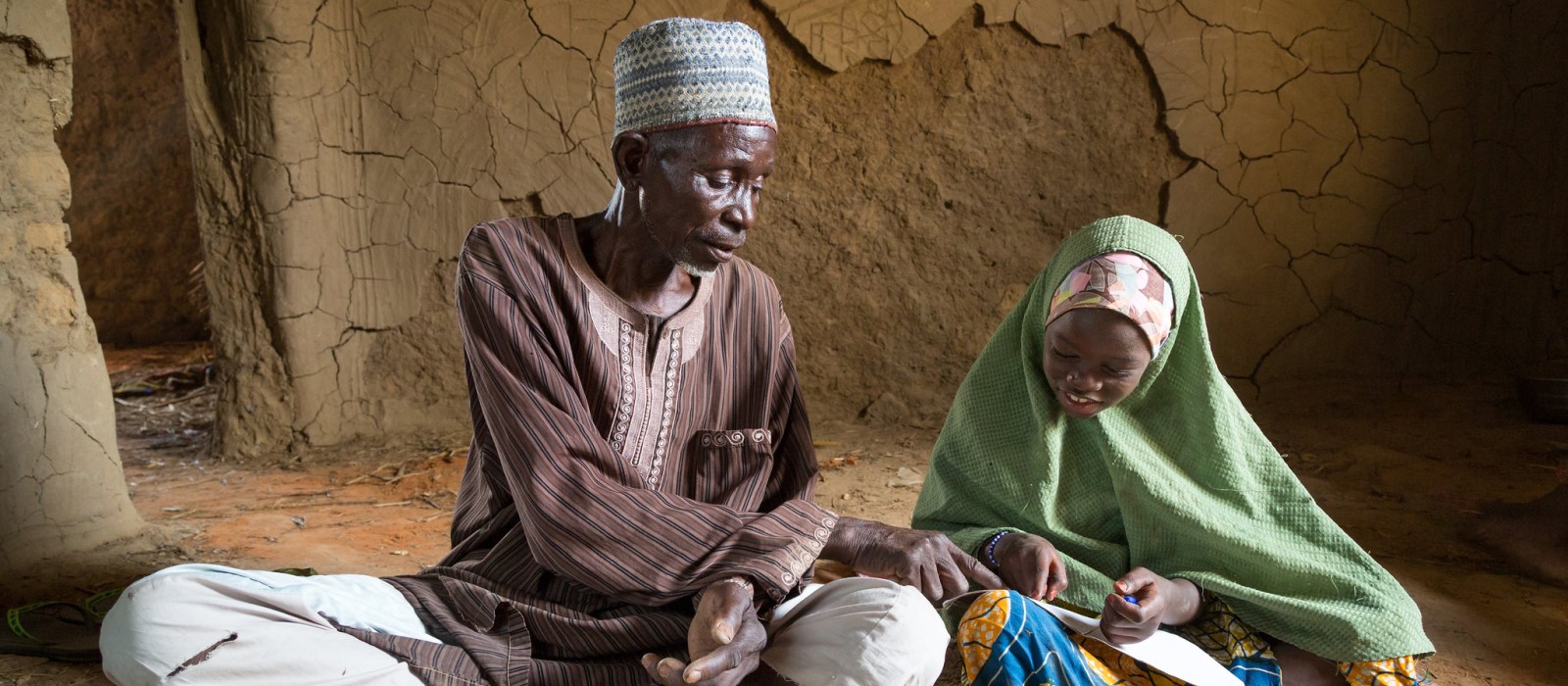Framing Education as a Legacy to Reduce Gender Gaps in Nigeria

Grandfather and village chief with granddaughter in Nigeria | GPE Kelley Lynch via Flickr
Study Context
Northern Nigeria has the largest number of out-of-school children in a single African country and most of them are girls (UNICEF, 2017). Gender gaps in median years of school attendance are up to 6 years (DHS, 2018), despite government mandates and free education through junior secondary school for children; educational paths are seen as competitive with culturally appropriate gender roles for girls. To address these gaps, the research team tests an intervention that aligns education with culturally prescriptive gender roles for girls and represents education as a bequest which parents can give their grandchildren, who honor that legacy.
Study Design
The research team will offer parents in Nigeria testimonials of adults who revere their grandparents because they trace their own professional and cultural achievements to the education these grandparents supported for their parents; this emphasizes the intergenerational bequest of education. Parents will be randomly assigned to either the treatment condition where they heard these testimonials, or a control condition which also had testimonials about education but emphasized hygiene and nutrition as vital for parents to maintain for their children. Using a resource allocation task and a behavioral measure in which the participants are offered the opportunity to devote a fraction of their compensation toward educational expenses for one of their children, the research team expects to see an effect of the intervention on how much money is allocated to girls versus boys. To analyze the parents’ responses, the researchers will use both quantitative and natural language processing tools.
Results and Policy Lessons
Results forthcoming.

